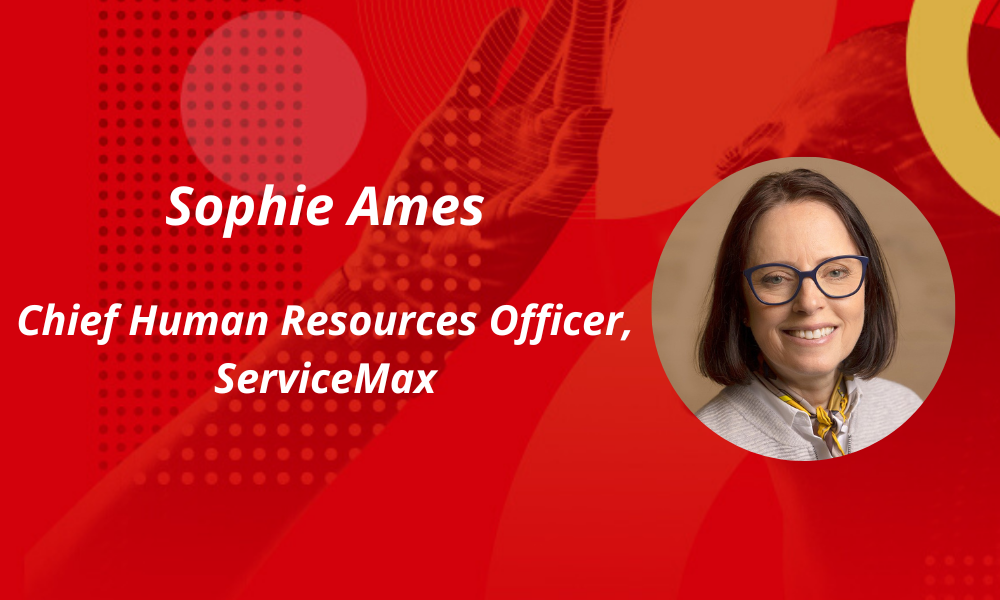Gen Z is at the helm: Why your talent strategy should evolve
- 6 Min Read
Young employees are in demand, generally tech savvy and have new ideas on how they want to work and live. How far do you go to accommodate them?
- Author: Sophie Ames
- Date published: Sep 28, 2022
- Categories

Gen Z is now the largest entrant into the consumer market and workforce, comprising 32% of the global population. They’re set to become the most significant segment of just about every organization’s team. Understanding their different lifestyles, interests, and beliefs presents both challenges and opportunities for businesses.
Having grown up with a deep connection to technology, Gen Z bring a competitive advantage to ongoing digital transformation initiatives present across all industries and are the voice for current and future expectations in technology. Mobile devices specifically are seen as an extension of themselves, which is why outdated, process-intensive corporate systems are a turnoff. They expect tech to be seamless – particularly in their professional lives. Likewise, video technology such as Vimeo, YouTube and Instagram are the lingua franca of recruitment for younger talent.
According to Deloitte’s 2022 Gen Z and Millennial survey, younger employees are striving for balance and advocating for change, however, cost of living is a top concern, closely followed by climate change, unemployment, mental health, and inequalities. This goes to the very heart of an organization, its culture and attitude towards people. Connecting with this cohort requires intentionality, with messages and management styles that make them feel valued, included, and empowered.
Why your talent strategy should evolve
The relationship between employees and employers is changing. Many organizations now consider the whole person at work and strive to embrace the employee’s complete identity and numerous roles both at work and outside work. This is quite a change from prior engagement models mostly focused on traditional career progression achieved through a series of sequential promotions over a lifetime. Today, it’s important to cater to a quicker career path. From an employer’s perspective, it’s important to show younger generations how they can progress as they’ve not inherited the ‘job for life’ mindset of prior generations.
As HR leaders, we must evolve our talent strategy from “Attract, Motivate, Retain” to “Inspire, Empower, Advance.” In the 21st century, organizations that develop engagement models that meet the specific goals and unique expectations of their workforce will have the upper hand on talent. Gen Z are paying attention to how organizations inspire them to join their ranks through strong employee value propositions, empower them to contribute at work and outside, and advance their financial health and personal and professional development.
6 suggestions for great Gen Z engagements
1. Communications
Younger members of your workforce want fluid, frequent communication via chat or messaging. Checking in over email is old school. Managers can shoot a quick text to check in or clarify a point while making themselves available for more in-depth conversation and direction.
2. Gen Z Managers
Rethink management styles to develop strong, authentic connections by focusing on personal development as much as professional development. For example, take the time to understand what motivates them, and provide continuous feedback. This is particularly important for a generation that’s used to instant feedback (text, likes on social media posts, etc.). In my own organization, performance reviews are based on ongoing quarterly conversations, supported by both a growth mindset and a coaching culture.
3. Learning and Development
Gen Z are extremely comfortable with technology, born and raised in the digital age and are highly adaptable. Learning and development for them is all about helping them explore and grow various skill sets.
4. 21st Century Workplace
Gen Z are at the helm of workplace transformation. They put less emphasis on traditional career trajectories and are more about carving their own path in life, as opposed to a stable desk job and a 9-5 routine. This is driving organizations to rethink the antiquated standards of where and when work takes place or tying it to a purely physical location. Hybrid work models allow employees to balance their days at the office and days at home. The focus of the office should be that of a destination for collaboration and community building – not an obligatory daily destination.
5. Inspiring Gen Z Into Your Organization
Gen Z want to work for a company with a purpose so leveraging them to turn the company into a force of good will increase your ability to attract and retain them. Likewise, they also want to be part of positive change at work and in the communities around them. This should be reflected in your company culture, values, and the place ERGs hold to provide a safe place for employees to dialogue on topics important to them.
6. DEI
As I mentioned earlier, for Gen Z, diversity is an expectation, not a goal. They spend their lives interacting with different people of diverse cultural groups and orientations. Diversity is the watchword for Gen Z. Diversity matters – race, gender, identity and orientation. I’ve seen this in my own organization where female VPs in the business have grown from 16% in 2019 to 48% today, reflecting the increasing diversity of the entire workforce. Those organizations that can represent the spectrum of differences in their external branding and marketing are much more likely to diversify their talent pipelines. It’s a natural reflection of society and the whole organization works better as a result.
Businesses now recognize that employees can shape organizations positively and contribute to brand reputation. Not just for employee retention and attraction but also for the competitiveness and longevity of the business. Great companies tend to be fluid. They don’t stick to rigid policies. They recognize that people have different ways of working and can contribute in a multitude of ways.
As a report from consultancy firm Korn Ferry claims, by 2030 demand for skilled workers will outstrip supply, resulting in a global talent shortage of more than 85.2 million people. Competition for skills is only going to get more intense.
If a business can perform better, be more creative, more competitive and more attractive to both new employees and customers, what is there not to like? Gen Z, like all generations, will have its fallibilities but its vision and ability to make organizations take a long hard look at themselves must be applauded.
____
Sophie Ames is Chief Human Resources Officer for ServiceMax.


